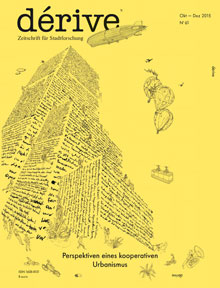magna in Sekulic 2015
ctively
enforced.
> (Benkler 2003: 6)
The above definition of commons, from the seminal paper "The political economy
of commons" by Yochai Benkler, addresses any type of commons, whether analogue
or digital. In fact, the concept of commons entered the digital realm from
physical space in order to interpret the type of communities, relationships
and production that started to appear with the development of the free as
opposed to the proprietary. Peter Linebaugh charted in his excellent book
_Magna Carta Manifesto_ , how the creation and development of the concept of
commons were closely connected to constantly changing relationships of people
and communities to the physical space. Here, I argue that the concept was
enriched when it was implemented in the digital field. Readdressing urban
space through the lens of digital commons can enable another imagination and
knowledge to appear around urban commons.
[](http
p with something much better and
appropriate for today's world. That property wouldn't be private, maybe not
even property, but something else. Only then can we say we have learned
something from the digital" (2013).
## Enclosure as the trigger for action
The moment we turn to commons in relation to (urban) space is the moment in
which the pressure to privatize public space and to commodify every aspect of
urban life has become so strong that it can be argued that it mirrors a moment
in which Magna Carta Libertatum was introduced to protect the basic
reproduction of life for those whose sustenance was connected to the common
pastures and forests of England in the thirteenth century. At the end of the
twentieth century, urban space became the ultimate commodity, and increasing
privatization not only endangered the reproduction of everyday life in the
city; the rent extraction through privatized public space and housing
endangered bare life itself. Additionally, the cities' continuous
privat
o Negri (2011): _Commonwealth_. Belknap Press of
Harvard University Press.
Harvey, David (2012): The Art of Rent. In: _Rebel Cities: From the Right to
the City to the Urban Revolution_ , 1st ed. Verso, 94-118.
Hill, Benjamin Mako (2012): Freedom for Users, Not for Software. In: Bollier,
David & Helfrich, Silke (Ed.): _The Wealth of the Commons: a World Beyond
Market and State_. Levellers Press / E-book.
Lessig, Lawrence (2012): _Code: Version 2.0_. Basic Books.
Linebaugh, Peter (2008): _The Magna Carta Manifesto: Liberties and Commons for
All_. University of California Press.
Mars, Marcell (2013): Interview by Dubravka Sekulic.
Mars, Marcell and Tomislav Medak (2004): "Both devil and gnu",
[www.desk.org:8080/ASU2/newsletter.Zarez.N5M.MedakRomicTXT.EnGlish](http://www.desk.org:8080/ASU2/newsletter.Zarez.N5M.MedakRomicTXT.EnGlish).
Martin, Reinhold (2013): "Public and common(s): Places: Design observer",
[placesjournal.org/article/public-and-
commons](https://placesjournal.org/article/p
Display 200 300 400 500 600 700 800 900 1000 ALL characters around the word.